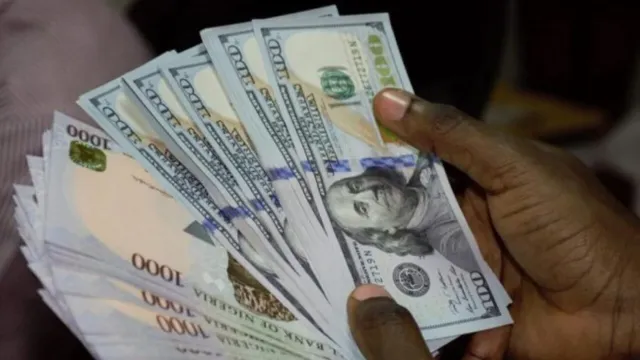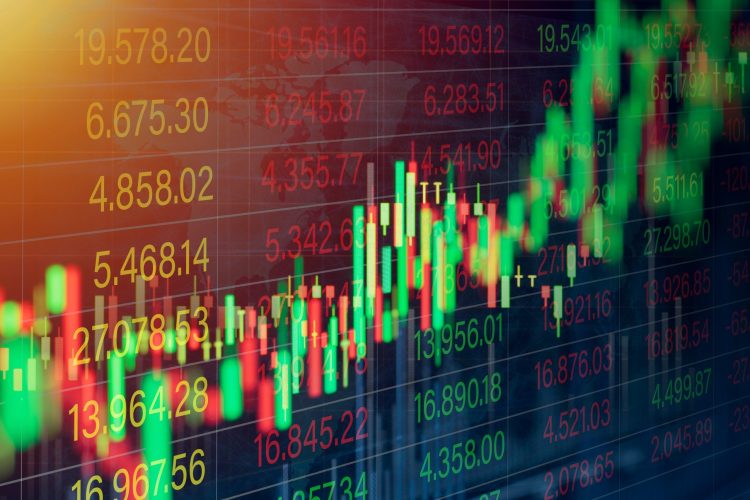Understanding the Dynamics of Dollar Exchange Rates to Naira in the Black Market

In the realm of global finance, currency exchange rates play a pivotal role in shaping economic landscapes. Nigeria, with its vibrant economy, has a complex relationship with the US Dollar, particularly in the black market. The black market, often referred to as the parallel market, operates outside official channels and has a significant impact on the daily lives of Nigerians. This article delves into the factors influencing the dollar exchange rate to Naira in the black market and the implications for the nation.
Historical Perspective:
To comprehend the current state of the dollar exchange rate to Naira in the black market, one must delve into the historical context. Over the years, Nigeria has experienced fluctuations in its currency value due to various economic factors. The exchange rate has been influenced by events such as oil price volatility, government policies, and global economic trends.
Oil Dependency:
Nigeria, as one of the largest oil-producing countries in Africa, heavily relies on oil exports for revenue. The fluctuation in global oil prices directly impacts the nation’s foreign exchange reserves. When oil prices are high, Nigeria experiences an influx of dollars, strengthening the Naira. Conversely, during periods of low oil prices, the Naira weakens, leading to an increase in the dollar exchange rate in the black market.
Government Policies:
Government policies also play a crucial role in shaping the exchange rate scenario. In an attempt to stabilize the currency, the Central Bank of Nigeria (CBN) often implements policies such as foreign exchange controls and restrictions. These measures, while designed to maintain stability, sometimes contribute to the prevalence of the black market. The scarcity of dollars in official channels drives individuals and businesses to the black market, where rates are determined by supply and demand dynamics.
Parallel Market Dynamics:
The black market for foreign exchange in Nigeria operates informally, outside the purview of regulatory authorities. The demand for dollars in the black market arises from various sources, including individuals seeking to travel, importers, and businesses with foreign obligations. The supply, on the other hand, is influenced by factors such as diaspora remittances, speculative activities, and external economic conditions.
Diaspora Remittances:
One significant source of dollar inflow into the black market is diaspora remittances. Nigerians living abroad often send money back home, contributing to the supply of dollars in the black market. The reliance on remittances as a source of foreign exchange highlights the interconnectedness of the global Nigerian community with the domestic economy.
Speculative Activities:
Speculation also plays a role in the dynamics of the black market. Traders and individuals may engage in currency speculation, anticipating future changes in exchange rates. This speculative behavior can lead to volatility in the black market, impacting the exchange rate. The lack of transparency and regulatory oversight in the black market further amplifies the influence of speculative activities.
External Economic Conditions:
Global economic conditions and geopolitical events contribute to the ebb and flow of the dollar exchange rate in the black market. Events such as trade tensions, economic sanctions, or global financial crises can have cascading effects on currency values. The black market, being responsive to immediate supply and demand pressures, tends to reflect these external factors more swiftly than official channels.
Implications for the Nigerian Economy:
The fluctuation of the dollar exchange rate to Naira in the black market has profound implications for the Nigerian economy. One immediate consequence is the impact on inflation. As the Naira weakens, the cost of imported goods rises, contributing to inflationary pressures. This, in turn, affects the purchasing power of consumers and the overall cost of living.
Additionally, the volatility in the black market can hinder foreign direct investment (FDI) and economic stability. Investors are often wary of countries with unpredictable currency environments, making it essential for Nigeria to address the challenges posed by the black market to attract sustainable investment.
Government Response and Future Outlook:
The Nigerian government, aware of the challenges posed by the black market, has taken various steps to address the issue. These measures include policy adjustments, interventions by the Central Bank, and efforts to diversify the economy away from oil dependence. However, achieving long-term stability in the exchange rate requires a comprehensive and sustained approach.
Diversification of the economy, investment in non-oil sectors, and the promotion of a transparent and efficient foreign exchange market are crucial steps in mitigating the impact of the black market on the Naira. Strengthening regulatory frameworks, promoting financial literacy, and fostering a business-friendly environment are essential elements for achieving a more stable and resilient currency exchange system.
Conclusion:
The dynamics of the dollar exchange rate to Naira in the black market present a multifaceted challenge for Nigeria. Understanding the historical context, the influence of oil dependency, government policies, and the various sources of supply and demand in the black market is crucial in developing effective strategies for stability. As Nigeria navigates these challenges, a concerted effort towards economic diversification, regulatory reforms, and fostering investor confidence will be essential in building a more resilient and stable currency exchange environment for the nation’s future prosperity.
-
What is the black market exchange rate?
The black market exchange rate refers to the unofficial, informal market where currencies are traded outside the official channels. In the context of Nigeria, it is the exchange rate for US Dollars to Nigerian Naira determined by supply and demand dynamics in the unregulated market.
-
How does the black market exchange rate differ from the official rate?
The official exchange rate is set by the Central Bank of Nigeria (CBN) and is meant to be a controlled and stable rate. In contrast, the black market rate is determined by market forces, leading to fluctuations and often a higher value for the US Dollar compared to the official rate.
-
What factors influence the dollar exchange rate to Naira in the black market?
Several factors impact the exchange rate in the black market, including oil prices, government policies, diaspora remittances, speculative activities, and external economic conditions. The dynamics are shaped by the interplay of these elements, contributing to the volatility observed.
-
Why is the black market exchange rate important?
The black market exchange rate is crucial because it reflects the immediate supply and demand conditions for foreign exchange. It affects the cost of imported goods, inflation rates, and has implications for the overall economic stability of Nigeria.
-
How does oil price volatility impact the black market exchange rate?
Nigeria, as a major oil exporter, is heavily dependent on oil revenue. Fluctuations in global oil prices directly influence the country’s foreign exchange reserves. When oil prices are high, there is an influx of dollars, strengthening the Naira; conversely, low oil prices can lead to a weaker Naira.
-
What role do government policies play in the black market exchange rate?
Government policies, especially those related to foreign exchange controls and restrictions, can influence the black market. Measures implemented by the Central Bank of Nigeria to stabilize the official exchange rate may inadvertently contribute to the prevalence of the black market.
-
How do diaspora remittances impact the black market exchange rate?
Nigerians living abroad often send money back home, contributing to the supply of dollars in the black market. Diaspora remittances play a significant role in determining the availability of foreign exchange in the informal market.
-
What is speculative activity in the black market, and how does it affect the exchange rate?
Speculative activities involve individuals and traders anticipating future changes in exchange rates. This behavior can lead to volatility in the black market as participants make decisions based on their predictions, impacting the supply and demand dynamics.
-
How do external economic conditions influence the black market exchange rate?
Global economic conditions and geopolitical events, such as trade tensions or financial crises, can affect the black market exchange rate. The market, being responsive to immediate pressures, tends to reflect these external factors more swiftly than official channels.
-
What are the implications of the black market exchange rate on the Nigerian economy?
The fluctuation of the black market exchange rate has implications for inflation, the cost of living, and foreign direct investment. It is crucial for the government to address these challenges to foster economic stability and attract sustainable investment.
-
What steps is the Nigerian government taking to address the challenges posed by the black market?
The government has implemented various measures, including policy adjustments, Central Bank interventions, and efforts to diversify the economy. Achieving long-term stability in the exchange rate requires a comprehensive and sustained approach, including economic diversification and regulatory reforms.
-
How can individuals and businesses navigate the impact of black market exchange rate fluctuations?
Individuals and businesses can consider strategies such as effective financial planning, hedging against currency risks, and staying informed about economic developments. Seeking guidance from financial experts and using official channels for foreign exchange transactions can also mitigate risks associated with the black market.





